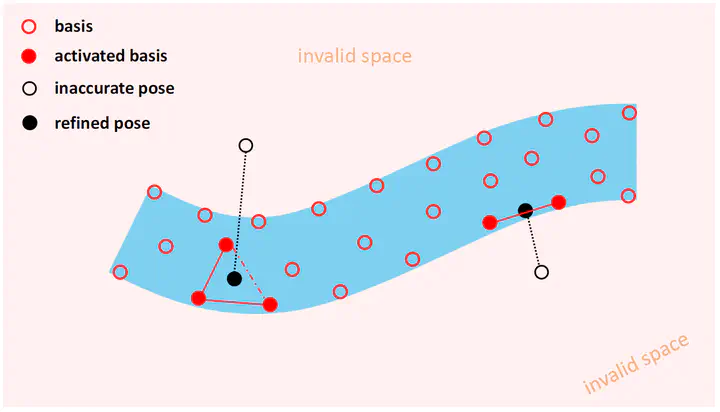 Feature space
Feature spaceAbstract
Estimating 3D human poses from 2D joint positions is an illposed problem, and is further complicated by the fact that the estimated 2D joints usually have errors to which most of the 3D pose estimators are sensitive. In this work, we present an approach to refine inaccurate 3D pose estimations. The core idea of the approach is to learn a number of bases to obtain tight approximations of the low-dimensional pose manifold where a 3D pose is represented by a convex combination of the bases. The representation requires that globally the refined poses are close to the pose manifold thus avoiding generating illegitimate poses. Second, the designed bases also have the property to guarantee that the distances among the body joints of a pose are within reasonable ranges. Experiments on benchmark datasets show that our approach obtains more legitimate poses over the baselines. In particular, the limb lengths are closer to the ground truth